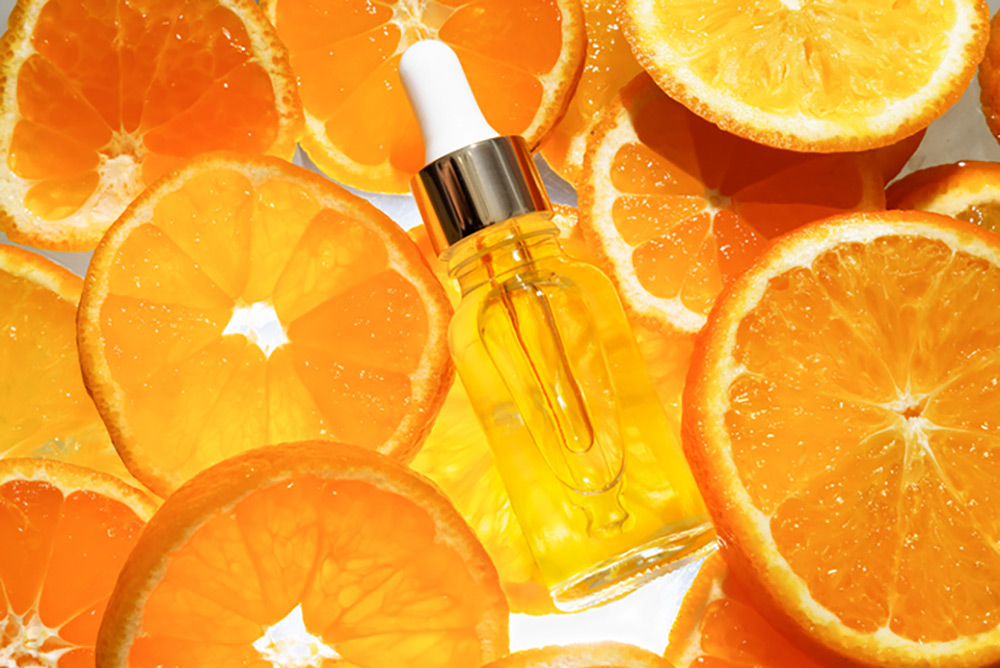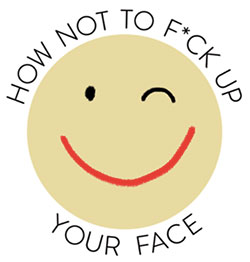By Valerie Monroe
If you’re interested in feeling happier about your appearance—especially as you age—you might like reading what she has to say about it. For more of her philosophical and practical advice, subscribe for free to How Not to F*ck Up Your Face at valeriemonroe.substack.com.
CAN YOU remember a moment when you felt like the world’s happiest woman? Maybe you were overwhelmed with gratitude, or awe, or by a transcendent orgasm, or . . . a succulent nectarine? If you’re anything like me, the moment inevitably passed and you succumbed to the drudgery of the beautiful slog.
I was thinking about happiness recently because of a New York Times headline: “The ‘World’s Happiest Man’ Shares His Three Rules for Life.” It’s an interview with the writer, geneticist, and Buddhist monk Matthieu Ricard. Years ago at O, The Oprah Magazine, I also had a chance to interview him.
About his keys to happiness? Cellular genetics? Meditation? No. I spoke to Ricard about inner beauty: what defines it, how we recognize it, and what it means.
There are certain people who don’t believe in inner beauty. To them I respond with a resounding: Okay, sure, whatever. Because I know it exists; I’ve seen it. Here’s a snippet of my conversation with Ricard.
Me: Inner beauty. It eclipses the impression of a woman’s physical traits. Something about her attracts you in the most profound way. Something radiates from within.
Matthieu Ricard: You’re responding to empathy, compassion, an openness to others. You see it on someone’s face when she feels in harmony with our deepest nature as human beings, which is basically peaceful and loving.
Me: But how does that harmony manifest itself physically?
MR: Through subtle expressions, which we pick up both consciously and unconsciously. Hundreds of almost imperceptible muscular movements constantly communicate our feelings.
Me: Think of how a classically beautiful face changes when it’s transformed by contempt; less beautiful, right? Maybe even ugly?
MR: Unconditional love transforms a face, too. We identify with that look; it brings up in us a yearning to be loved and to be loving; and it reminds us of the best we can be, which we may have forgotten or sublimated. And so, inspired, we wind up looking out at the world through more loving eyes, passing the harmony along.
Me: That’s the thing about inner beauty! Unlike physical beauty, which grabs the spotlight for itself, inner beauty shines on everyone, catching them, holding them in its embrace, making them more beautiful, too.
◊◊◊◊◊◊◊◊◊◊
And pivoting to the subject of outer beauty, a curious reader asked about the value of vitamin C serums: Are they really necessary? Worth the money? A waste of time?
Q: So many people seem to swear by a vitamin C serum as necessary for great skin. You can either pay a fortune for it, or you can get one for about $8 at The Ordinary. Is it a necessary part of a skincare routine? If so, does price equal quality in any way?
A: I don’t use a vitamin C serum and I don’t miss it. (I’ll explain why in a minute.) That’s why I’ve been suggesting to readers that it’s not really necessary and not worth spending a small fortune on.
But dermatologist Hadley King has other ideas.
“I do think topical antioxidants are important,” she said. “They help protect the skin from free-radical damage caused by UVA/UVB rays. And for most of us, sun damage is the single biggest extrinsic aging factor.” UV radiation leads to oxidative stress because of these free radicals, which creates cell damage. So neutralizing the free radicals with antioxidants like vitamin C strengthens the prevention of photodamage.
Though sunscreen, either mineral or chemical, helps to protect skin from UV radiation, when combined with antioxidants like vitamin C, the protection has been shown to be greater, said King. Vitamin C also helps brighten the skin and fade dark spots that can result from UV radiation.
There’s more!
It also protects from free-radical damage due to other source, such as pollution; it’s a critical factor in collagen synthesis. And it’s needed for wound healing.
A ringing endorsement if I ever heard one.
But—and you may already know this—vitamin C serums are tricky, because the most commonly used form, L-Ascorbic acid, is an unstable ingredient. It oxidizes quickly when exposed to light and air. That’s why you want to look for more stable forms of vitamin C, such as magnesium ascorbyl phosphate, sodium ascorbyl phosphate, and tetrahexyldecyl ascorbate (THD), the fatty acid component of which may allow for better penetration and may also be less irritating, said King.
How can stability be improved? Adding other antioxidants like vitamin E and ferulic acid, lowering the solution’s pH, and packaging the product in a way that protects the product from light and air are all necessary to preserve effectiveness.
This means, as King points out, that although price is not linearly correlated to quality, some thought (and expense) needs to have been used in formulation, ingredient selection, and packaging—which often translates to a higher price.
Case in point: this very popular one and this wildly spendy one. (The inexpensive serum you asked about, dear Reader? I can’t tell you how effective it might be—but at $8, it probably won’t damage your budget.)
I’m often a confused (and suspicious) label-reader, so I’d probably choose a serum from my dermatologist’s office. I’d also check to be sure the formula contains an active form of vitamin C (like one mentioned above), has a strength of 10% to 20%, and a pH lower than 3.5—all of which suggest a more effective product.
Now that you know why you might want to use a vitamin C serum, I’m going to tell you why I don’t.
I’ve used a prescription retinoid every night (currently Altreno) for more than 20 years, which I apply under a CeraVe nighttime moisturizer with niacinamide. I wear an SPF 30 sunscreen (or higher) every day. (This one is often doctor-recommended.) I believe that’s enough protection for me.
Jen Novakovich, cosmetic chemist and director of the website The Eco Well, isn’t convinced vitamin C serums are worth the fanfare because of the stability issue, the expense, and because she believes niacinamide (found in many beauty products) is as effective and more stable.
Here’s my bottom line: You might invest in a vitamin C serum if you’re the kind of person who’s most comfortable with a seat belt and a cross-body harness. If you’re a spring chicken (not a mature squab like me), a retinoid (either prescription or OTC) in the evening, along with a vitamin C serum in the morning before moisturizer and sunscreen, might help prevent certain unflattering extrinsic signs of aging. But if I were 25 again (god forbid) and had to choose, I’d choose the retinoid over the serum, hands down.
The point of using skincare is to keep your skin as healthy as possible, not to avoid all signs of aging. Investing in a product thinking it’ll help you grow old without fine lines and wrinkles is a fool’s game. But the better you protect your skin from the damaging effects of the sun, the healthier your skin will be as you age. The mirror, and your satisfaction with having taken good care of yourself, will reflect that. I’m pretty sure you’ll be happier for it, too.



The snippets of your interview with M. Ricard were enjoyable, though too short! I would have liked more. As for Vitamin C serums, I’ve been using Skinceuticals’ C& E Ferulic probably since it was introduced. My face looks pretty damn good for 71 years old, I think. At this point I’m afraid to stop using it, though it has gotten really pricey (not as pricey as the other one you linked!). Everyone has to choose what works best for them, and what they’re comfortable with.
I can attest to your face looking great!